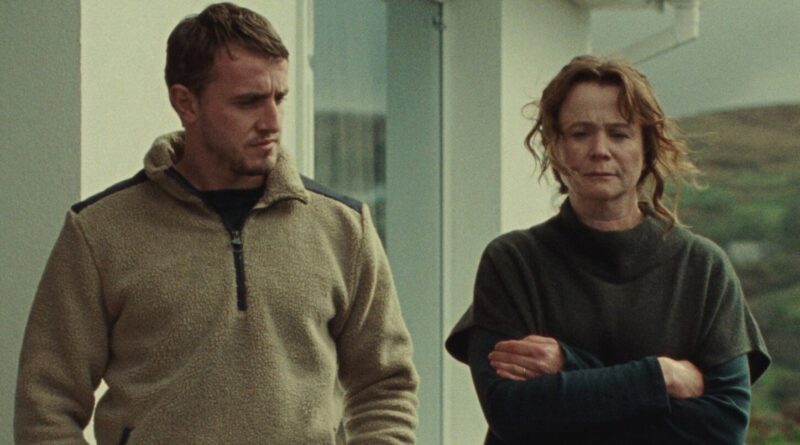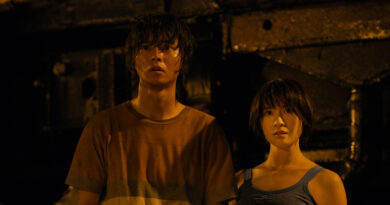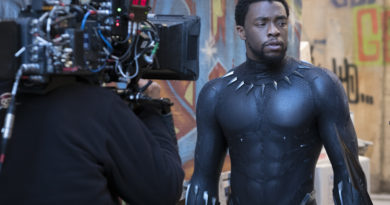Celebrating talent from the North of England
The BFI today announce the complete programme for NORTHERN VOICES, a season dedicated to exploring the northern talent and creativity that has driven distinctive storytelling across both film and television, as well as the major contribution the North has made to our national culture.
Working closely with partners HOME in Manchester and Film Hub North (part of the BFI Film Audience Network), this BFI season will be presented in London at BFI Southbank, at HOME Manchester and in Leeds. Further screenings are expected to follow in the spring at cinemas across the North.
The season will interrogate the myths about northern culture and look towards current representations of its many distinct districts. Above all, NORTHERN VOICES will celebrate the richness and quality of the work, past and present, from Colin Welland, Keith Waterhouse and Andrea Dunbar to Elaine Constantine, Jimmy McGovern, Terence Davies and many more.
Few writers have mined northern culture and specific northern speech patterns as successfully as Alan Bennett, who will appear onstage during Northern Voices at BFI Southbank on 17 April. Growing up in Leeds, he listened in on the chatter of his relatives, absorbing the patter of domestic conversation, which would emerge across a glittering and much-loved range of plays, particularly those written for television.
Following ALAN BENNETT IN CONVERSATION, where audiences will have a rare chance to hear from the celebrated writer, there will be screenings of Bennett’s first television monologue A WOMAN OF NO IMPORTANCE (BBC, 1982) starring Yorkshire native Patricia Routledge, who powerfully conveys the quiet desperation behind a life of loneliness; and WAITING FOR THE TELEGRAM (BBC, 1998), Bennett’s sixth and final collaboration with Thora Hird, whose BAFTA-winning performance as a resident of a nursing home who reminisces over lost loves and a largely unhappy life, reportedly reduced the film crew to tears.
On 23 April, BFI Southbank will host the NORTHERN VOICES FORUM, an illustrated discussion with special guests including actor Sunetra Sarker (Ackley Bridge, Casualty, No Angels), writers Frank Cottrell-Boyce (Stephen, Butterfly Kiss, 24 Hour Party People) and Tony Schumacher (The Responder) and the Head of Development at Warp Films, Siobhan Morgan. The event will bring together some of the north’s most innovative and inspiring creatives who will explore how and why northern culture drives so many of the UK’s most successful stories across the large and small screen.
BFI Southbank will also host a special event to celebrate the generations of distinctive comedians that all hail from Liverpool, including Robb Wilton, Arthur Askey, Ken Dodd, Betty Marsden, Alexei Sayle, and Kenny Everett. LAUGHTER FROM LIVERPOOL on 29 April will be a bespoke compilation of performances and interviews featuring some of Liverpool’s funniest figures who combine elements of Irish whimsy, absurdism, earthy vulgarity and surrealism that have proved universally popular.
In Leeds (venue/date TBC), NEXT NORTHERN VOICES will be an event presented by FilmHub North, in partnership with BFI, that will examine who will be the voices that shape the identity of the North in the future as broadcasters, funders and audiences push for more authentic stories from every corner of the UK.
Working with Channel 4, who now have a National HQ in Leeds, NEXT NORTHERN VOICES will explore the opportunities for new and emerging filmmakers in the North and, crucially, ask how to ensure that the voices telling these stories are representative of the diversity of the regions.
The NORTHERN VOICES season will also take place HOME Manchester, with screenings of film and TV titles every Sunday from 2-23 April. Titles screening will include LAND OF GREEN GINGER (BBC, 1973), written by Hull-raised write Alan Plater; when she is faced with the prospect of being sent to work abroad, Sally returns home from London to Hull to see if she still feels the same attachment for her hometown – and for her old boyfriend.
In THE PITY OF IT ALL (ITV, 1966), Stan Barstow – the Yorkshire writer best known for his novel A Kind of Loving – produces a sensitive script which gives Billie Whitelaw the opportunity to shine as a grieving mother. Tom Courtenay stars in BILLY LIAR (John Schlesinger, 1963) as a lazy, wildly inventive and irresponsible clerk in a small northern town. Unable to accept an uneasy domestic situation with his parents and frustrated by his drab everyday life, Billy escapes into a world of fantasy, imagining he is a successful man of the world.
ROLL ON FOUR O’CLOCK (ITV, 1970) is a powerful and at times harrowing look at homophobic bullying in a Salford secondary school, about an introverted teenager, who finds himself at the mercy of his fellow pupils. Collin Welland’s clever script avoids explicitly confirming Latimer’s nascent sexuality, while making a universal point about the singling out of anyone perceived to be different.
Welland also scripted KISSES AT 50 (BBC, 1973) about a man who begins an affair with the new barmaid at his local pub. Word of their relationship quickly spreads throughout town, prompting them to move down south in an attempt to escape the monotony of their middle-aged lives.
Set in the period of 1944 leading up to the Normandy landings, YANKS (John Schlesinger, 1979) examines the cultural differences and romantic entanglements between a troop of US soldiers stationed in the UK and their hosts in a small Northern town. Another script from Colin Welland, this time he shifts focus far from the front lines and crafts a story of World War II that combines epic sweep, intimate observations and emotional heft.
Each screening in this season will be preceded by a short film showcasing the best of contemporary Northern filmmaking talent – presented in partnership with Film Hub North as part of BFI NETWORK, awarding funds from the National Lottery. These shorts include INCOMPATIBLE (Maxine Peake, 2022), TRUE COLOURS (Milda Baginskaitė, 2021), ONE LIKE HIM (Caitlin McLeod, 2021) and THE BARBER (Dhivya Kate Chetty, 2022).
FURTHER DETAILS OF THE BFI SOUTHBANK SEASON
BFI Southbank’s Northern Voices season, which is curated by the BFI’s Television Programmer Marcus Prince, will include screenings of:
- BILLY LIAR (John Schlesinger, 1963) – adapted from Keith Waterhouse’s novel, and starring Tom Courtenay and Julie Christie, BILLY LIAR follows attractive dreamer Billy’s attempts to escape his humdrum existence, both through his fantasies and in reality via his attempts at a relationship. IN CELEBRATION (Lindsay Anderson, 1975) – based on biographical elements of writer David Storey’s childhood in a Northern mining town, three educated brothers return to their working-class home to celebrate the 40th anniversary of their parents. Alan Bates, James Bolam and a young Brian Cox are all on top form as the film builds to an intense and powerful climax.
- LETTER TO BREZHNEV (Chris Bernard, 1985) – fizzing with the acerbic, yet warm humour that Liverpool is famous for, LETTER TO BREZHNEV did much to put the city on the cinematic map. Made on a shoestring and shot over three weeks, it tells the story of two girls’ night on the town and their encounter with Russian sailors.
- RITA, SUE AND BOB TOO (Alan Clarke, 1986) – Alan Clarke, who was born in Birkenhead, was the perfect director to understand Andrea Dunbar’s plays, in tune with her uncompromising humour and skilled at bringing out the quiet desperation of Bradford’s Buttershaw estate, where the writer was raised. Her experiences guarantee an authentic tone to this hugely enjoyable film, which embraces wider themes to explore the increasing divide in society between the haves and have-nots.
- PRIEST (Antonia Bird, 1994) – with a brilliantly moving script by Jimmy McGovern, PRIEST grapples with the sexuality of a young cleric. Under Antonia Bird’s flawless direction, Linus Roache convincingly embodies the frustrations and anger of a man balancing his calling with his own desires.
- MY SON THE FANATIC (Udayan Prasad, 1997) – written by Hanif Kureishi from his own short story, MY SON THE FANATIC follows a Pakistani cab driver living in Bradford. His home life is torn apart when his son turns to Islamist fundamentalism meanwhile he finds himself increasingly drawn to Bettina a white prostitute.
- OF TIME AND THE CITY (Terence Davies, 2008) – Davies’ passionate, moving and witty cinematic essay weaves archive footage of Liverpool with the filmmaker’s own memories of childhood, capturing the essence of Liverpool and its changing culture over the years.
- THE ARBOR (Clio Barnard, 2010) – making brilliant use of verbatim filmmaking, Clio Barnard combines scenes from Andrea Dunbar’s plays, staged on the estate where they’re set, alongside actors lip-syncing to audio interviews with those who knew the writer, including her daughter. The result is a powerful docudrama that encapsulates many of the problems and challenges Dunbar faced in her life, which saw her turn to drugs and alcohol, and ultimately led to her tragic death at 29.
- NORTHERN SOUL (Elaine Constantine, 2014) – a labour of love for writer-director Elaine Constantine, NORTHERN SOUL follows two young lads in the 1970s as they chase their dream of travelling to the USA, discovering the best in soul music and establishing themselves as top DJs on the Northern soul circuit.
- THE WEDNESDAY PLAY: NO TRAMS TO LIME STREET (BBC, 1970) – proving that The Wednesday Play was often not about kitchen-sink misery, this lively musical by Alun Owen, with music and lyrics by Marty Wilde and Ronnie Scott, captures the energy and optimism of three sailors on shore leave in Liverpool.
- ARMCHAIR THEATRE: THE HARD KNOCK (ITV, 1962) – Alun Owen’s writing draws each character beautifully, as tough merchant seaman Pat Greevey returns to his family in Liverpool to discover the truth about his brother being hanged for the murder of a night watchman.
- SATURDAY NIGHT THEATRE: ROLL ON FOUR O’CLOCK (ITV, 1970) – Colin Welland mined his own experiences as a teacher before he turned to acting and writing to create one of the most convincing and important dramas about prejudice and homophobia ever conceived.
- PLAY FOR TODAY: KISSES AT 50 (BBC, 1973) – another deeply affecting play from Collin Welland; as Harry turns 50, he faces up to lost opportunities – when he begins an affair with barmaid Audrey, their lives are irrevocably changed.
- PLAY FOR TODAY: THE LAND OF GREEN GINGER (BBC, 1973) – returning home to Hull, Sally comes to feel loss at the realisation that she cannot return to her former life. This was the first time that writer Alan Plater, who was raised in Hull, consciously used his love of music in his work – integrating it within the drama in a wholly new way.
- ARMCHAIR THEATRE: THE PITY OF IT ALL (ITV, 1966) – Billie Whitelaw shines in this gem of a play by Stan Barstow. When Walter accidentally strikes and kills a young child while driving, he feels compelled to visit the child’s mother. An attraction draws them together, resulting in an affair that offers Walter some escape from the claustrophobia of his own marriage.
- PLAY FOR TODAY: COMEDIANS (BBC, 1979) – Richard Eyre directs this television version of Trevor Griffiths’ famous play. Set in a Manchester night school class for aspiring comics, COMEDIANS brilliantly pre-empts current debates about what’s acceptable in the name of humour.




